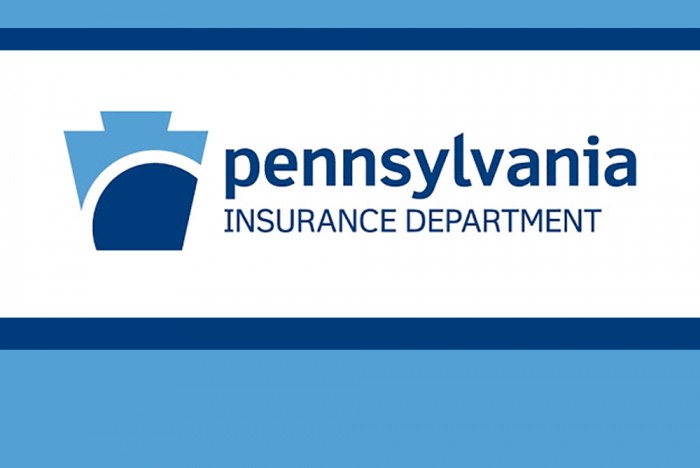The Health and Economic Recovery Omnibus Emergency Solutions Act (HEROES Act)
From ACCSES:
Today is the day we have been waiting for, as the U.S. House of Representatives released the draft text of the $3 trillion dollar stimulus today. The bill is titled The Health and Economic Recovery Omnibus Emergency Solutions Act, or the HEROES Act.
This bill will begin in the House and then go to the Senate. The House has scheduled the vote for Friday, where it is likely to pass. There have been indications from the Senate and the White House that there is not as much interest in a fourth stimulus now as there had been a few weeks ago, so this bill is not expected to move as quickly as the prior stimulus bills.
This bill includes additional support for Home and Community-Based Services (Medicaid services begins at page 189), including increased pay and hazard pay for home health workers and direct support professionals, funding for PPE, increased FMAP, and funding for individuals who are waitlisted by states for HCBS services.
Nonprofit HCBS providers are included as organizations with which the State should engage on expanded services. This draft bill also contains a provision that would include nonprofits in the Main Street Lending Program (beginning at page 1063). It does not appear to include a provision protecting self-insured employers, but there is support for some further relief in both the Senate and House, so we will continue advocating for it.
We will break the bill down further this week, but here is a brief summary of the bill and the swirl of politics around it from CNBC. At 1,815 pages, this bill has many other provisions in it, including increased funding to the States, extensions of the additional $600 in unemployment compensation, another round of direct payments to individuals, voting rights protections (including for people with disabilities), and funding for the U.S. Postal Service.
PA Act 18 Approved for Fingerprinting Relief
In an effort to provide temporary relief for individuals in need of FBI fingerprinting as part of the Child Protective Services Law, Governor Wolf has approved legislation — formerly HB 360 and now ACT 18 — that allows temporary fingerprinting flexibility where Identogo sites are not available. In a phone call today with the Office of Children, Youth and Families (OCYF) Planning Committee, it was discussed that OCYF expects to release the guidance this week with some noted limitations as outlined below.
Existing Employees – Have until December 31 to get fingerprints for those whose checks have expired since March 2020. Still need PSP and Child Abuse Checks completed.
For new employees, if you have not been a resident in PA within the past 10 years, you must also provide Child Abuse clearances from prior states of residence. New hires also sign a disclosure statement (attestation form).
New hires have until December 31, or 60 days from end date of state of emergency as directed by Governor Wolf, to get fingerprinting done. Individuals must still make reasonable efforts to complete checks at your local Identogo site if it is open.
Further direction and comment will be forthcoming from RCPA after the OCYF guidance is released. If your agency or staff are having difficulty in obtaining fingerprints, or if you are looking for Identogo mobile sites or resources, please contact RCPA Children’s Director Jim Sharp.
OLTL Services in Counties Designated by the Governor as Yellow Phase
On May 1, 2020, Governor Wolf announced that 24 counties from the northwest and north-central regions of Pennsylvania would be moving from red phase to yellow phase beginning Friday, May 8, 2020 as part of the Wolf administration’s process to reopen PA. This marks a reduction in some restrictions on work and social interactions. However, restrictions related to congregate care settings remain in place.
The following counties moved from red phase to yellow phase on May 8, 2020: Bradford, Cameron, Centre, Clarion, Clearfield, Clinton, Crawford, Elk, Erie, Forest, Jefferson, Lawrence, Lycoming, McKean, Mercer, Montour, Northumberland, Potter, Snyder, Sullivan, Tioga, Union, Venango, and Warren.
These counties were deemed ready to move to the yellow phase because of low per-capita case counts, the ability to conduct contact tracing and testing, and appropriate population density to contain community spread.
OLTL Services in Counties the Governor Declares in the Yellow Phase
Moving from the red phase to the yellow phase does not change any guidance that has been issued by OLTL or the Community HealthChoices (CHC) managed care organizations (MCO). All conditions outlined in the guidance noted below continue to apply to each provider category.
| Home and Community-Based Services | CHC Waiver Operational Guidance and the OBRA Waiver Operational Guidance including remote initial level of care assessments, Service Coordinator contacts, person-centered service plan development and provision of service. |
| Nursing Facilities
|
Clarification Guidance for Pennsylvania Pre-Admission Screening Resident Review (PASRR), the Interim Guidance on Visitation in Nursing Facilities During COVID-19, and Guidance for Infection Control and Prevention |
| Living Independence for the Elderly (LIFE) | LIFE Provider Guidance Related to COVID-19 |
| Assisted Living Residences and Personal Care Homes | Interim Guidance on Visitation in Nursing Facilities During COVID-19,the Guidance for Infection Control and Prevention, the Guidance Suspending and Restricting License Requirements for Personal Care Homes and Assisted Living Residences, and Visitation Restrictions in Personal Care Homes and Assisted Living Residences |
Providers are encouraged to continue to monitor the Department of Health (DOH) COVID-19 website for the most up-to-date DOH guidance on COVID-19, the Department of Human Services (DHS) COVID-19 website for the most up-to-date DHS guidance on COVID-19, and Governor Wolf’s website for responding to COVID-19 in Pennsylvania.
OLTL will continue to evaluate the steps necessary to address the Governor’s plan to reopen PA and communicate updated guidance as the situation evolves.
If you have questions about the information in this ListServ email, please contact the OLTL Provider Helpline at 800-932-0939.
OMAP Offers Guidances On MATP
The Office of Medical Assistance Programs (OMAP) has released two separate guidances related to Medical Assistance Transportation Program (MATP) services during the Corona Pandemic. The purpose of these communications are to advise all county administrators, brokers, and all contracted transit agencies (collectively referred to as MATP agencies) of the precautions necessary to ensure safe provision of non-emergency medical transportation services to Medical Assistance beneficiaries while the Governor’s Proclamation of Disaster Emergency issued on March 6, 2020, remains in effect.
ADvancing States Announces Release of ConnectToCareJobs.com
CMS Releases Updated COVID-19 Resources
Today, the Centers for Medicare and Medicaid Services (CMS) released updated information on recent actions and resources specific to the COVID-19 pandemic.
CMS Continues to release waivers for the health care community that provide flexibilities needed to take care of patients during the COVID-19 public health emergency. The additional blanket waivers are provided here.
CMS updated a video that answers commonly asked questions about the expanded Medicare telehealth services benefit.
They also published an MLN Matters article which provides information for pharmacies and other suppliers that wish to enroll in Medicare temporarily as independent clinical diagnostic laboratories, to assist with addressing needs for COVID-19 testing.
Additional flexibilities offered to states to address the coronavirus pandemic. In addition to the following waivers, a toolkit was developed to expedite the application and review of each request.
ANCOR/NatCon Advocate for Nonprofits with More Than 500 Employees
ANCOR is partnering with the National Council of Behavioral Health to get the eligibility cap lifted for nonprofits providing I/DD, Substance Abuse, and Mental Health services. Here’s the ANCOR/NatCon issue brief with the “ask” we sent to Congress.
As nonprofit providers of intellectual and developmental disability services and supports, you are on the front lines of the novel, COVID-19 pandemic. While Congress has been making strides to support small businesses, the Coronavirus Aid, Relief, and Economic Security (CARES) Act excluded from eligibility for the Small Business Administration’s (SBA) Paycheck Protection Program (PPP) nonprofits who employ more than 500 employees.
This exclusion has led to your organizations having to make hard decisions, ranging from furloughs, reducing services, experiencing exploding costs with no assurance of reimbursement. This is unacceptable – people with disabilities cannot be forgotten at this time of crisis. Now is the time to act.
Risks, Increased Liability with Non-Compliance of Business Closure Orders
FOR IMMEDIATE RELEASE
May 11, 2020
Harrisburg, PA – Pennsylvania Insurance Commissioner Jessica Altman today reminded businesses of the importance of complying with Governor Tom Wolf and Department of Health Secretary Rachel Levine’s orders – for counties in both the red and yellow phases.
In addition to the critical public health objectives, Commissioner Altman warned non-compliant businesses defying the governor and secretary’s business closure orders that many insurance policies contain provisions that exclude coverage for businesses or individuals engaging in illegal acts or conduct. These exclusions may apply to property coverage, liability coverage, advertising injury coverage, and a host of other essential coverages.
“Businesses and residents rely on insurance coverage to protect them from liability, pay for covered losses, and compensate those who may be injured or harmed,” said Altman. “It is the duty of every business and resident in Pennsylvania to ensure that they and the public at large are provided with the maximum level of protection afforded by insurance. Any actions that could potentially create coverage gaps are the antitheses of the civil duty required of all residents during these times of emergency.”
This reminder is offered to all Pennsylvania businesses and residents, regardless of in what county they reside. The department strongly encourages businesses or residents who have questions or concerns regarding insurance coverage during the phased reopening of businesses in this commonwealth to reach out to their insurance carrier to discuss concerns.
Find more information on Gov. Wolf’s latest orders here.
FAQs for businesses in each phase can be found here.
MEDIA CONTACT: Thaisa Jones, [email protected]
# # #
IRFs Receive Clarification on Virtual Team Meetings & COVID-19 Coding
Late this afternoon, the Centers for Medicare and Medicaid Services (CMS) issued new guidance to inpatient rehabilitation facilities (IRFs) that provides additional clarification on flexibilities being afforded in response to the COVID-19 pandemic and also confirms that team meetings can be performed virtually. CMS will allow all forms of social distancing precautions when holding interdisciplinary team meetings and stressed electronic or virtual team meetings would be the safest during this pandemic.
In addition to CMS exercising their regulatory flexibility to waive the 60 percent rule, they are also waiving IRF coverage and classification requirements if the following criteria are satisfied:
- Patient is admitted to a freestanding IRF to alleviate acute care hospital bed capacity issues
- IRF is located in an area that is in Phase 1 or has not entered Phase 1 as noted in Guidelines: Opening Up America Again
CMS also provides additional information on the codes that should be used when IRFs are utilizing flexibilities that CMS has issued. CMS directs IRFs to add the following letters at the end of the unique hospital patient identification number (or medical record number in the IRF) to identify the patients eligible for each waiver:
- D – 60 percent rule
- DS – Coverage and classification requirements
- DDS – Both 60 percent rule and coverage and classification requirements
















